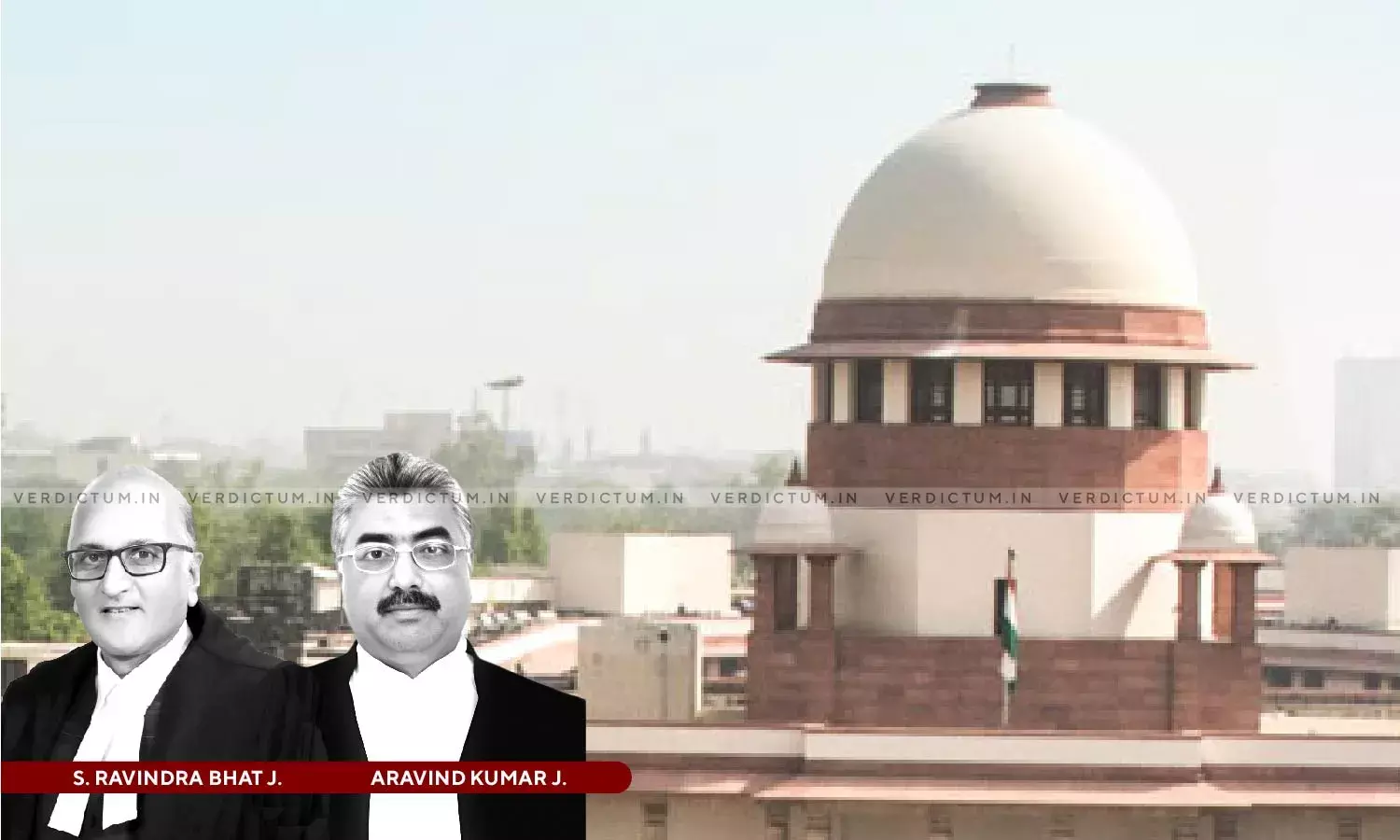Relegating Parties To Authorities Would Add Salt To Wound, Acrimony Would Continue To Haunt Future Generations: SC In 50 Years Old Land Dispute

The Supreme Court in a 50 years old land dispute has observed that relegating the parties to the authorities would add salt to the wound or acrimony between parties would continue to haunt the future generations.
The appellants, in this case, were legal heirs of the landlord and they were aggrieved by the judgment of the High Court which set aside all the orders passed by the authorities and ordered for remand of the case before the original authority.
The two-Judge Bench of Justice S. Ravindra Bhat and Justice Aravind Kumar held, “… we are of the considered view that this litigation is pending for nearly 50 years and as such relegating the parties to the authorities would only add salt to the wound or acrimony between the parties would continue to haunt the future generations and as such we have undertaken the exercise of applying the formula prescribed under Section 33B(5)(b) as illustrated in Chunnilal Bhailal Wani case (supra) of the Act to allocate the respective shares of the parties on the basis of not only admission found from the depositions recorded at the earliest point of time but also on the revenue records which has been relied upon by the authorities for undertaking such exercise.”
The Bench said that the High Court was not correct in remanding the case, in its entirety to the original authority on the ground that the landlord having died pending eviction proceedings, his heirs had to demonstrate afresh, the bonafide requirement of leased lands for personal cultivation.
Senior Advocate Vijay Hansaria appeared for the appellants while Advocate Ravinder Keshavrao Adsure appeared for the respondents.
Brief Facts -
Survey No. 291 and Survey No. 290/1 & 290/2 were given on lease to the respondents through two separate lease deeds for a period of 13 years. The lease in respect of the former was specifically executed for cultivation of sugarcane crop, whereas the lease for the latter was for cultivation, generally. On the expiration of the tenure of the lease, a notice for termination of tenancy was issued to the tenants and the landlord sought to recover possession for the purpose of personal cultivation. It was stated in the notice that the tenanted land was the principal source of income for the family and that their livelihood was dependent on the cultivation of such lands. The notice pertained to land bearing Survey No. 291 only and no separate notice of termination of tenancy was issued in respect of land bearing Survey No. 290/1 & 290/2. Since the tenant did not voluntarily relinquish his possession in response to the notice, the landlord initiated proceedings for resumption of tenanted lands before the Court of Tenancy (original authority) under Section 29 read with Section 43A(1)(b) of the Bombay Tenancy and Agricultural Lands Act, 1948.
Through the aforesaid proceedings, the landlord sought to recover possession of lands leased under both lease deeds and ultimately, the original authority allowed the application of the landlord and directed that 22 acres of the suit lands was to be restored to him. Both the landlord and the tenant preferred appeals against the order of the original authority before the Court of Assistant Collector (appellate authority). The appellate authority, vide a common judgment, upheld the findings of the original authority but modified the extent of land, which was to be restored to the landlord. Against the decision of the appellate authority, the landlord and the tenant filed revision applications before Member of the Maharashtra Revenue Tribunal, Pune (revisional authority) which allowed the tenant’s application. The landlord challenged the same before the High Court which remanded the case and hence, the matter was before the Apex Court.
The Supreme Court in view of the facts and circumstances of the case noted, “… the High Court fell into grave error in ordering remand of the case by considering, events which occurred subsequent to the date of filing of the petition. … We may also record here that it was unnecessary for the revisional authority to remand the case for framing an issue on the applicability of Section 31A-31D. The applicability of those provisions was dependent on the question of whether the landlord’s holding exceeded one unit of economic holding. That question was merely one of law, the fact of the landlord’s holding having already come on record before the original authority.”
The Court further added that the revisional authority could have taken upon itself the task of deciding the question and disposing off the dispute before itself.
“… appellants (legal heirs of original landlord) are entitled to 8.34 Acres in Survey No.291 and the jurisdictional tehsildar shall take steps to handover physical possession of the said land to the appellants as indicated herein expeditiously and at any rate within an outer limit of three months from the date of receipt of this Order”, held the Court.
Accordingly, the Apex Court allowed the appeal and set aside the order of the High Court.
Cause Title- Keshav Bhaurao Yeole (D) by LRS. v. Muralidhar (D) & Ors. (Neutral Citation: 2023 INSC 939)


